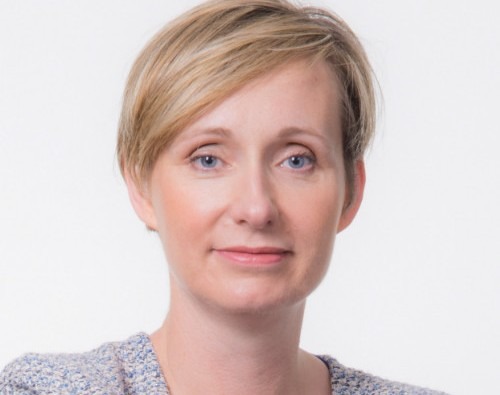Regulations in England mandate twice weekly lateral flow tests for carers, with those testing positive forced to stay at home. However, the Infection Control Fund that previously met the costs of sick pay ended in the Spring meaning that care providers have been meeting the unfunded costs of sick pay directly through debt or utilising their increasingly exhausted reserves. This has created an unsustainable risk to an already overstretched sector that could see workers who are already among the lowest paid in the UK dependant on the statutory sick pay of just £99.35 per week if they call in sick, creating a ‘Covid Catch-22’ for those already struggling to make ends meet amid escalating living costs.
Social care is significantly underfunded, meaning that providers do not receive the income to offer competitive rates of pay. As a result, many care workers simply do not have the savings to live on Statutory Sick Pay of less than £100 a week. This financial knife-edge creates a real risk that care workers who test positive for Coronavirus will not declare these positive tests to ensure that they can remain in work or will choose to leave a sector that is already in the midst of a workforce crisis.
Community Integrated Care, a charity which employs more than 5000 social care workers across the UK, has asked the government to reinstate funding for this enforced sick leave. With both a moral imperative – the inequality that care workers, who risked their lives during the pandemic, are now facing financial risk and foodbanks for simply following rules – and a social and economic one too, with the care sector already coping with 112,000 unfilled posts.
Teresa Exelby, Chief People Officer for Community Integrated Care, explains: “Social care is tragically underfunded. This means that many providers simply cannot offer sick pay to their workforce, and those that can do so at the expense of competitive rates of pay. Every care provider is facing a perilous choice right now, with a twice weekly testing regime rightly ensuring that people who are carrying the virus do not work in care services, yet no funding to support their sick pay.
“Clearly, this is flawed and dangerous. Care providers are faced with a Catch-22 of either picking up the tab for sick pay which means cuts to vital services and investments, raiding limited financial reserves, or seeing their workforce live on the minimal allowance of Statutory Sick Pay. This enforced absence is not a small cost to bear – in our charity alone, the average cost of Covid-related sick pay has been around £150,000 per month since March.
“Whichever way you look at it, this scenario creates risks. Whether that is care providers spending money that they simply do not have, further undermining their long-term viability, or care workers enduring financial hardship with Statutory Sick Pay or perhaps even ignoring positive tests and still attending work.”
Community Integrated Care has seen almost 50% of its workforce – around 2500 staff – forced to take time off with Covid in the past six months. Following the cessation of funding, most of the cost of sick pay has been met from the charity’s reserves at a cost of almost £1 million. This crisis points to a wider issue of the lack of workforce strategy and parity within the social care sector.
Independent research by Korn Ferry, the world’s leading experts in job evaluation, with Community Integrated Care last year revealed that care workers earn on average 39% less – a gap of more than £7000 annually – compared to their equivalents in other public funded sectors, including the NHS. The NHS, which is funded by Central Government, provides guaranteed sick pay allowances to its workers and has recently offered its workers pay increases of up to 9%.
However, social care is funded by cash-strapped local authorities, who cannot provide the necessary investment for care organisations to ensure parity of pay and conditions. This results in a workforce turnover of more than 34% annually – more than twice the UK industry average.
Teresa Exelby adds: “This entire experience is representative and symptomatic of the wider workforce crisis in social care. Social care is complex, accountable and highly skilled, yet funding dictates that it is one of the lowest paying industries in society. As a result, we face a constant battle to recruit and retain talent. This is a false economy and an injustice. The victims of this are not only care sector employees, but also people who deserve high-quality, consistent support, delivered by the very best people.
Central government needs to step up to provide fair investment in social care, to mirror the same pay bands and entitlements that are found in the NHS. There is no justification why people who deliver comparable roles in NHS and care do not receive comparable pay. This is a fundamental factor in a sector that is broken and we can see that so clearly illustrated with sick pay.”
The National Care Forum (NCF), the leading association for not-for-profit care providers, has backed Community Integrated Care in the call for central Government to reinstate funding to support the ongoing provision of sick pay. It warns that the problems experienced within the sector reverberate throughout the health system, exacerbating bed shortages within hospitals as a result of a lack of community capacity.
Liz Jones, Policy Director for the NCF said: “We need a funding mechanism whereby staff isolating in line with government guidance can receive a salary at their standard rate. In no other sector are people expected to sacrifice their salary in order to comply with government regulations. Without this, we are facing into a repeat of previous crises that ripple across all areas of society.
“The very fact that we have to campaign for sick pay shows the lack of a coherent workforce and investment strategy for social care. The government needs to invest in the sector, so that it can give people the same terms that are reasonably expected within the NHS and so many other industries.”
Picture Caption: Teresa Exelby, Chief People Officer for Community Integrated Care








